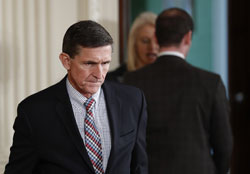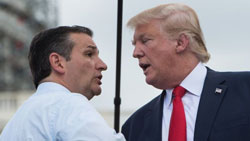When campaigning, politicians often overlook the importance of the young voters. During President Barack Obama’s 2008 presidential campaign, he made it a point to reach out to today’s youth and to hear what they had to say. His campaigning led the youngest members of the United States’ electorate to vote, the majority of whom voted Democratic.
Young voters, especially college students, were a major component in President Obama’s road to the White House. In 2008, Rock the Vote, an organization supported by the University’s Political Science Club, promoted political involvement directed towards today’s youth.
The program was responsible for the largest youth voter registration drive in history. Also, according to CIRCLE, (the Center for Information and Research on Civic Learning and Engagement), more first time voters participated in the 2008 election than ever before.
By going to events where there would be a large and youthful crowd, as well as influential celebrities, President Obama was laying the foundation and exposing an effective campaign strategy. His appeal to the youth only emphasized his campaign theme of hope and change.
The young, first time voters were looking for change, and by listening to their views and appealing to the youthful masses, President Obama marketed himself as the man who could give them what they wanted.
In order to attract young voters in the upcoming November elections, politicians should go to the places where their potential constituents spend the majority of their time, school. High schools and colleges are good places to begin. Speaking to students on a one- on- one basis helps politicians learn about the issues that pertain to and are on the minds of today’s youth.
While launching his 2010 senatorial campaign, Florida Sen. Marco Rubio recognized the importance of having the support of the youth and made an effort to get in touch with young voters. As a young politician himself, Rubio understands what it is that young voters are looking for in their candidates.
Sen. Rubio’s campaign launched a college campus drive to recruit college students to aid in his on- campus campaigning.
The program recruited supporters, volunteers, and interns during the final weeks of the spring semester. Rubio also held a major statewide college rally at the University of Florida, and the event was broadcasted to college groups in support of his campaign across the state.
“Through our campus recruiting drive, college students will play a key role in making sure that, by the time they return for the fall semester, Marco [Rubio] will be the Republican nominee for U.S. Senate and heading to victory in November,” said Alex Burgos, Rubio for Senate Spokeswoman.
Are today’s politicians targeting the youth enough? Some campaign strategies depict candidates as inaccessible, especially to young student voters. Town hall meetings and presidential debates may not be enough. Although important, the topics discussed at most political events and rallies aren’t the issues that interest young voters.
Politicians should make more of a conscious effort to host events and forums where the topics for discussions are the main points of interest and concern for young people, especially college finances and future job markets for college graduates.
First time voters and young voters in general want to feel as if their candidates have their best interests in mind, and the best way for candidates to give their young constituents this impression is to become more personable.
Visit more college campuses, make appearances at youth events, and get the support of popular celebrities. The youthful mind is very impressionable. Politicians who are out of touch with their young audiences are a dime a dozen. Those who set themselves apart by reaching out and showing that they have a genuine concern for today’s youth are the ones who can have a long-lasting impression on young voters and make some youth realize political aspirations they didn’t know they had.




